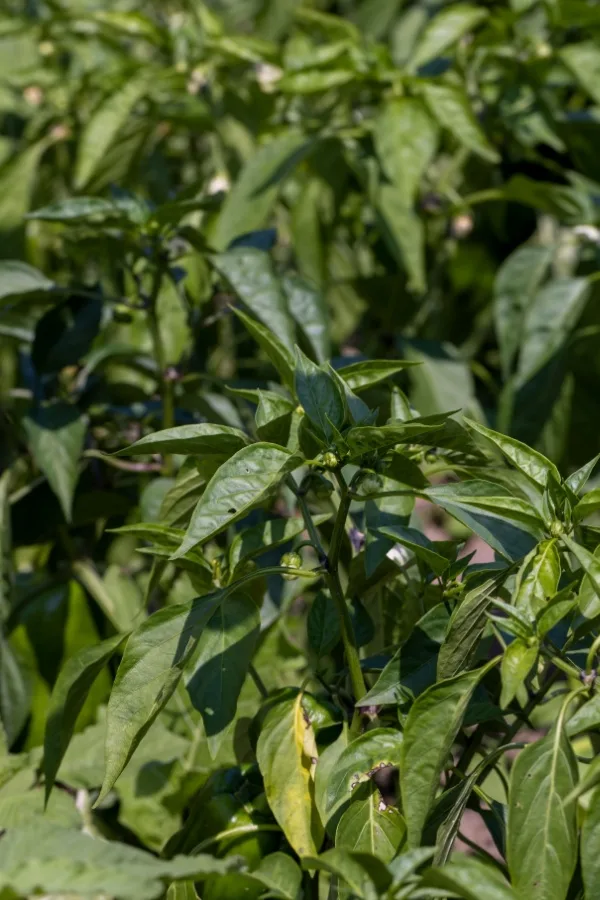Best Fertilizers for Peppers: Improve Growth and Flavor with Our Leading Picks
Best Fertilizers for Peppers: Improve Growth and Flavor with Our Leading Picks
Blog Article
Organic Vs. Synthetic Fertilizers: Which Is Best for Supporting Healthy And Balanced Pepper Plants?
In the world of supporting healthy pepper plants, the choice in between artificial and organic plant foods stands as a crucial choice with far-ranging ramifications. While both choices aim to offer vital nutrients to sustain plant growth, the subtleties of their influence on the soil, plant wellness, and the setting stimulate a debate that echoes throughout the gardening community. Understanding the unique advantages and possible mistakes of each plant food kind is important for pepper cultivators looking for to enhance their yields while maintaining a sustainable and eco-conscious strategy.
Advantages of Organic Fertilizers
Organic plant foods supply a sustainable and environmentally-friendly approach to beneficial pepper plants, providing essential nutrients without using artificial chemicals. These natural plant foods are stemmed from natural resources such as compost, manure, bone dish, and algae, advertising soil wellness and biodiversity. Unlike synthetic plant foods, natural options launch nutrients gradually, making certain a stable and balanced supply for pepper plants to flourish.
One substantial advantage of natural fertilizers is their capability to boost dirt framework and water retention. By enhancing dirt health, natural plant foods promote advantageous microbial activity, which aids in nutrient uptake by pepper plants. Furthermore, organic fertilizers decrease the threat of chemical run-off, safeguarding water sources from air pollution and safeguarding the atmosphere.
Furthermore, organic fertilizers add to long-term soil fertility by advertising the development of beneficial dirt microorganisms. These microorganisms assist damage down natural issue, releasing nutrients in a form that is conveniently accessible to pepper plants. best fertilizers for peppers. By cultivating a healthy soil ecosystem, organic plant foods support sustainable pepper cultivation techniques that profit both plants and the setting
Downsides of Synthetic Fertilizers
Artificial fertilizers, as opposed to their natural equivalents, position various downsides when made use of to nourish pepper plants, influencing both plant health and ecological sustainability. One significant disadvantage of artificial plant foods is their propensity to seep nutrients from the soil rapidly. This rapid leaching can cause nutrition inequalities in the soil, triggering plants to struggle with shortages or toxicities. Additionally, artificial plant foods can damage advantageous soil organisms, such as earthworms and valuable bacteria, interfering with the dirt environment's balance.
Additionally, the overuse of artificial fertilizers can add to water air pollution. Excess plant foods not taken in by plants can clean away into water bodies, resulting in eutrophication, where algae blooms diminish oxygen degrees in the water, hurting marine life. Moreover, synthetic fertilizers are commonly stemmed from non-renewable sources, such as nonrenewable fuel sources, adding to carbon exhausts and environmental destruction during their production.
Nutrient Absorption Contrast
When contrasting synthetic and organic fertilizers in terms of nutrient absorption, natural plant foods additional hints have the benefit of giving a much more balanced and slow-release resource of nutrients. Organic fertilizers have a variety of macro and trace elements that are not only useful for the plants yet likewise advertise healthy and balanced dirt microbial activity, which aids in nutrient uptake.
Additionally, organic plant foods boost soil structure and water retention capacity, enabling pepper plants to accessibility nutrients a lot more successfully. This enhanced dirt high quality promotes origin advancement, making it possible for better nutrient absorption. Artificial fertilizers, although originally boosting plant growth as a result of their high nutrient focus, may hinder long-term nutrient absorption by derogatory soil wellness with time.
Ecological Influence Factors To Consider

On the other hand, synthetic fertilizers, although often more concentrated and immediately offered to plants, can have destructive results on the environment if not applied correctly (best fertilizers for peppers). Their production needs high energy inputs, causing greenhouse gas exhausts and adding to environment adjustment. Furthermore, the overflow of excess artificial fertilizers can pollute water sources, bring about eutrophication and damaging aquatic environments.
Ideal Fertilizer Practices for Peppers
To accomplish this, it is essential to comply with best plant food practices tailored to the details needs of pepper plants. One critical practice is to do a dirt anchor test before applying any kind of fertilizers.
An additional crucial practice is to feed pepper plants at the best time. Commonly, peppers take advantage of getting fertilizer at growing and after that again when they start to blossom. Over-fertilizing can bring about nutrient imbalances and harm the plants, so it is vital to adhere to recommended application prices.
Additionally, picking a balanced plant food with an NPK proportion that matches pepper plants' needs is basic. Organic plant foods, such as compost or manure, can be excellent options as they release nutrients gradually and enhance soil framework with time. Nevertheless, synthetic plant index foods can provide a quick nutrient increase when needed. Inevitably, integrating organic and artificial plant foods deliberately can assist support healthy and balanced pepper plants while minimizing ecological influence.
Conclusion

Organic fertilizers offer a lasting and environmentally-friendly approach to nourishing pepper plants, giving vital nutrients without the usage of artificial chemicals. Unlike synthetic fertilizers, natural options launch nutrients slowly, making certain a balanced and stable supply for pepper plants to prosper.
Artificial plant foods, in comparison to their organic equivalents, present different negative aspects when made use of to nurture pepper plants, affecting both plant wellness and ecological sustainability. When contrasting synthetic and natural plant foods in terms of nutrient absorption, natural fertilizers have the benefit of offering an extra well balanced and slow-release source of nutrients.In addition, organic plant foods enhance soil structure and water retention capacity, allowing pepper plants to access nutrients a lot more efficiently.
Report this page